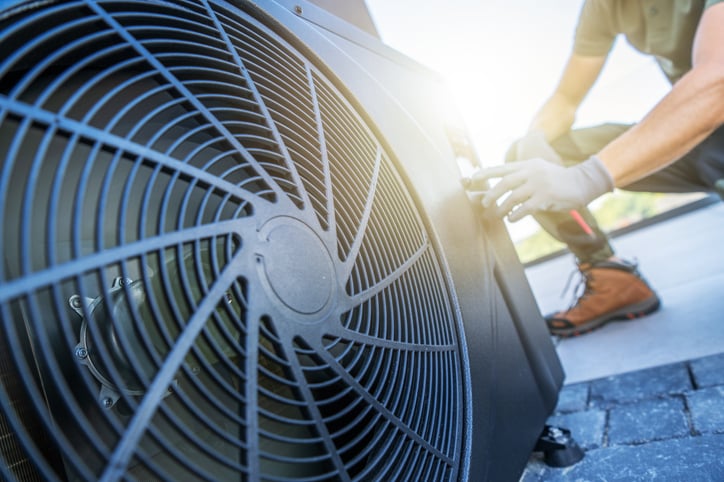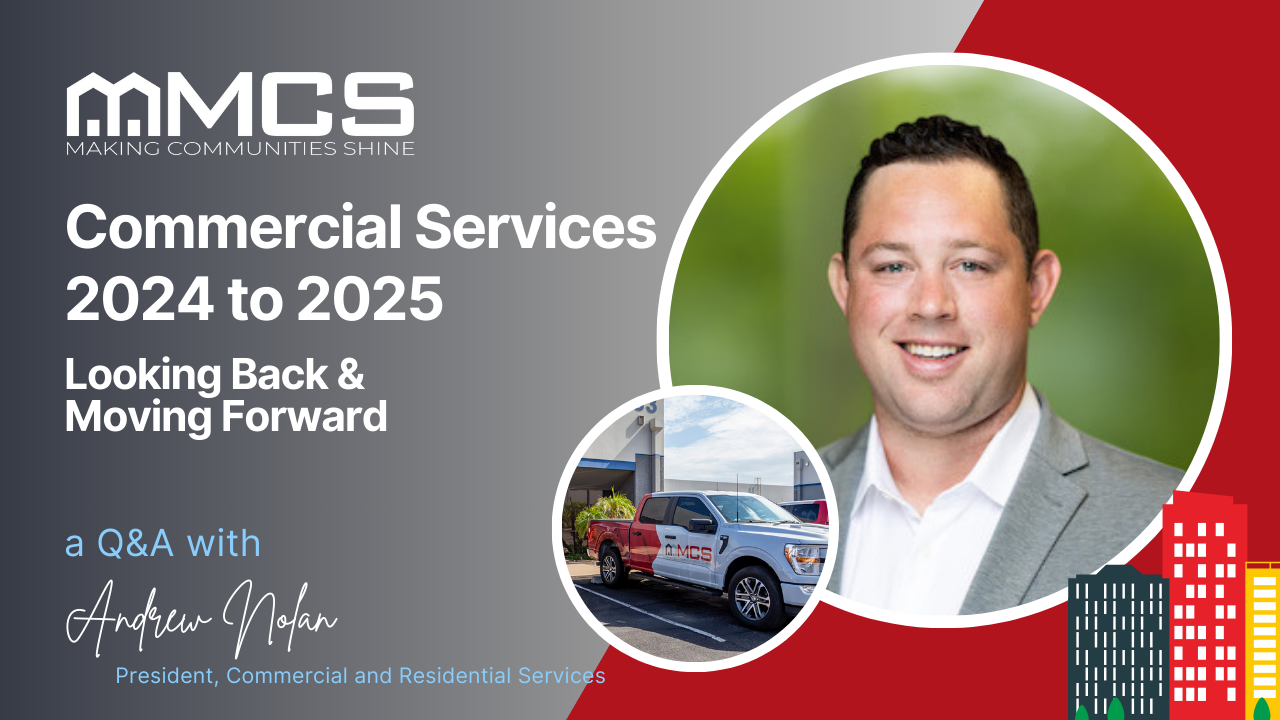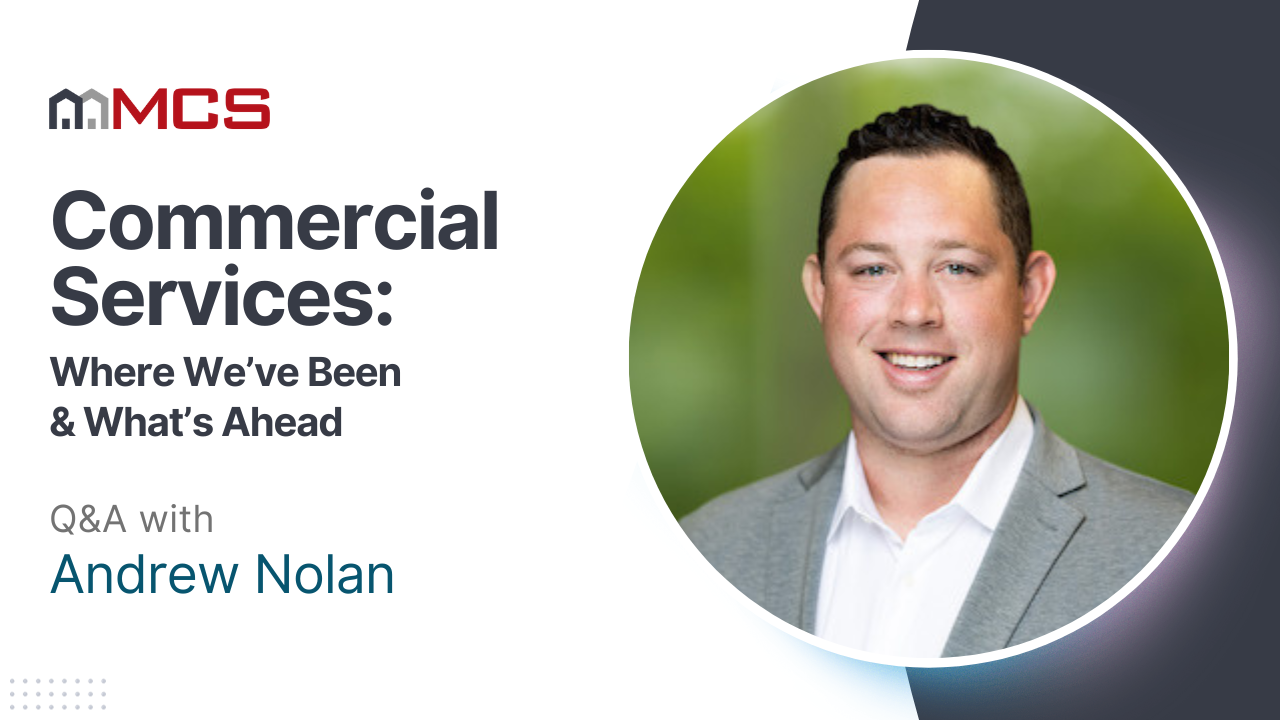Running Smoothly: Explore the Keys to Commercial HVAC Preventive Maintenance

Maintaining a reliable HVAC system is crucial for the comfort, safety and efficiency of any commercial property, not to mention keeping costs in check. After all, heating, ventilation and air conditioning account for around 35% of energy consumption for commercial buildings, according to Department of Energy estimates.
NOTE: CSM currently provides HVAC services in select markets with plans to expand. Contact CSMsales@ChainStore.com for full details.
Trust Chain Store Maintenance for
Reliable, Immediate Commercial Property Services
Make sure you know the benefits of regular commercial HVAC services, what they should involve and how Chain Store Maintenance - an MCS Company, can help you keep your business running smoothly as your HVAC maintenance partner.
Benefits of commercial HVAC preventive maintenance
The benefits of regular commercial HVAC preventive maintenance can be felt instantly, through improved performance and comfort for your tenants or customers, for example. But HVAC preventive maintenance is also future-focused on the benefits you’ll reap over time, like reduced downtime and cost savings achieved by preventing costly breakdowns and extending the lifespan of your equipment.
Commercial HVAC services essentials
Take the burden and guesswork out of ensuring your HVAC systems run smoothly by entrusting their preventive maintenance to an experienced partner like Chain Store Maintenance. Here’s a summary of the services your partner should perform at least biannually.
Air filters
To promote optimum airflow and help prevent clogs that can take their toll on your system, your commercial HVAC partner should change your commercial air filters—but note that this is one critical service that should happen more frequently than twice per year: Your filters should be changed at least quarterly to ensure top performance.
Equipment controls
Your commercial HVAC partner should confirm your system’s controls are functioning efficiently as well as powering on and off as expected.
Electrical connections
Your partner will ensure there are no loose or faulty electrical connections and check their current and voltage is essential to keeping your equipment running properly—and safely.
Thermostat
An HVAC professional should check thermostat settings seasonally to ensure they are programmed for the appropriate temperature based on the time of year.
Fan
Your HVAC partner should inspect your fan’s motor and blades for damage and ensure they are operating normally.
Blower area
Your commercial HVAC partner should inspect blower components like the blower motor and wheel, belt tension, pulleys, wiring and bearings and confirm they are all property calibrated to efficiently circulate air throughout your building.
Drain lines and pans
Cleaning drain lines can clear any clogs and ensure proper flow while removing standing water in drain pans. It helps to avoid a potential overflow, and your HVAC services partner should be doing both.
A/C refrigerant
The refrigerant system is a critical component of A/C maintenance, moving the heat from indoor air outside, and too much (or too little) refrigerant decreases your system’s efficiency, drives up costs and can shorten its life. Your commercial HVAC partner should inspect and charge refrigerant levels to keep your system working efficiently.
Condenser and evaporator coils
Your commercial HVAC partner should clean outdoor condenser and indoor evaporator coils. Cleaning outdoor coils involves checking and recording the refrigerant pressure, then rinsing the coils with water, applying an air-conditioner-specific cleaning agent, and removing any debris that’s accumulated around them. Checking the refrigerant pressure again will confirm whether it’s lower now. Cleaning evaporator coils and inspecting them for damage is also critical, especially before the summer season when your AC system will be working the hardest.
Ducts
Your commercial HVAC maintenance partner should inspect your system for air leaks, zeroing in on noticeable gaps or loose ductwork, and sealing them as needed. They should follow this check by vacuuming your ducts to prevent pollutants like dust, debris and mold from being circulated inside your building.
Final system test
Your partner’s final check should involve testing your HVAC system, allowing it to run while checking for irregularities.
Partner with a trusted commercial HVAC provider
Looking for an experienced, trusted commercial HVAC services partner? Chain Store Maintenance – an MCS Company can help you create a comprehensive preventive maintenance plan to enhance the reliability of your HVAC systems and help extend their life, and we provide 24/7 service from experts for all your HVAC needs. Contact your Chain Store account representative or email CSMsales@ChainStore.com today to learn more.



